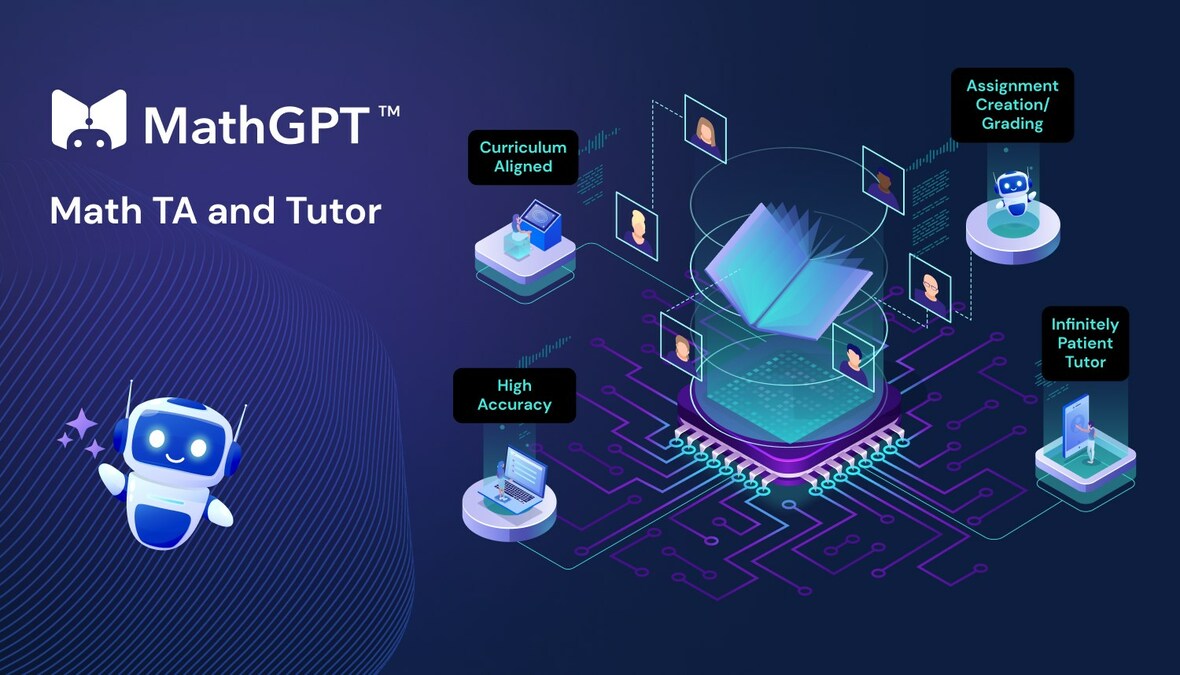As artificial intelligence reshapes education—and stirs debates about academic honesty—a new player is emerging with a reputation for ethical tutoring. MathGPT.ai, launched last year as a “cheat-proof” AI assistant, is now expanding from a pilot program in 30 colleges to over 50 institutions across the United States, including Penn State, Tufts, and Liberty University.
With an AI chatbot designed to avoid simply giving answers, MathGPT.ai leverages the Socratic method, guiding students to think critically rather than memorize solutions. For professors, it acts as a virtual teaching assistant—automating question generation, homework, grading, and more.
New Tools, New Control for Educators
A recent platform upgrade has shifted the focus toward teacher autonomy. Instructors can now control when the AI is available, set limits on student attempts for each question, and allow unlimited practice runs without affecting grades—creating a low-pressure learning environment.
To deter misuse, MathGPT.ai now offers features like image upload requirements, enabling professors to verify handwritten work. It also integrates smoothly with popular Learning Management Systems—Canvas, Blackboard, and Brightspace—and boosts accessibility through screen-reader compatibility, audio mode, and AI-narrated video lessons with closed captions.
One of MathGPT.ai’s bold claims is its refusal to stray into frivolous conversations. Its AI agent won’t discuss personal life—or “the meaning of life,” according to its chairman. This restriction ensures it stays within educational boundaries, unlike freer AI chat tools.
Accuracy remains a concern—while human reviewers meticulously vet content and reward users who report mistakes, the company acknowledges possible errors. In the first year, there were five; by the third, none have been reported.
MathGPT.ai’s ambitions extend beyond mathematics. Though currently offering support across algebra, calculus, and trigonometry, the platform plans to expand into subjects like chemistry, economics, and accounting—and is developing a mobile app for broader access.
Pricing ranges from a free version to a $25 per-student-per-course tier that unlocks unlimited AI-generated assignments and LMS integration.
Why it Matters
In a landscape wrestling with cheating and tech misuse, MathGPT.ai offers a cautiously optimistic middle path—AI that tutors ethically rather than shortcuts learning. Its expansion to dozens of universities signals growing acceptance of such structured tools.
However, its success will depend on consistent academic integration—training faculty, evaluating learning outcomes, and extending access equitably, especially beyond well-funded universities. Will this model be sustainable, or fall victim to the trendiness of tech education tools?
MathGPT.ai is more than a novelty. It represents a thoughtful approach to AI in education—balancing innovation with integrity. If it works, it could be the standard-bearer for how AI supports learning across the globe, not just in the U.S.
Talking Points
In Africa, where many schools still lack internet access or qualified teachers, an AI tutor like MathGPT could be a game-changer. But here lies the paradox: while elite universities in the U.S. and Europe adopt such tools, most African students still wrestle with chalkboards and overcrowded classrooms.
Will Africa always be the “last passenger” in the global education train? Or will policymakers finally prioritize tech-in-education infrastructure?
MathGPT is positioned as a teaching assistant, not a teacher replacement — for now. But history tells us that automation rarely stops at “assistance.” If universities see cost savings, will they cut back on hiring educators?
This could weaken the human connection in learning, which no AI, no matter how advanced, can replicate.
As tools like MathGPT spread, we must confront a reality: the global north is accelerating its learning with AI, while the global south risks being left further behind.
Imagine the future job market — graduates trained with AI tutors vs. graduates still struggling with outdated syllabi. The inequality gap could become brutal.





